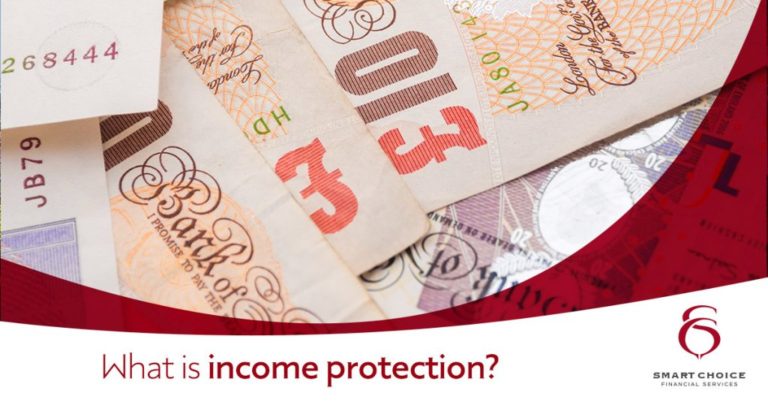Tax return in the UK – when do you have to fill it in?
In the UK, you are obliged to file a tax return not only when you are self-employed or have set up a limited company, but also when you are a contractual employee and your tax is paid through PAYE (Pay As You Earn) system. This is the case when:
- you live in the UK permanently, but you have not received a resident status yet,
- you have got a resident status both in the UK and another country at the same time (dual residency),
- you do not live in the UK permanently, therefore you do not have ordinarily resident status,
- you are also employed in another country, and your income is £2,000 or more,
- the UK in not your permanent place of residence (domicile), but at the same time you work there, using remittance basis.
However, if you work and live in the UK permanently, you have a resident status, and you rely on a single source of income – a contractual job, your tax is probably paid through PAYE and you are not required to file a tax return.
Self-employment vs. limited company in a tax return – which to choose?
Many people working in the UK decide to work on their own account. Two of the most frequently chosen forms of such activity are self-employment and limited company. In both cases you are obliged to file an annual tax return, however, due to significant differences between these two forms, the tax return will be different for each of them.
If you choose to be self-employed in the UK, you will be responsible for paying income tax on your own. The amount of tax is calculated on the basis of tax rates for individuals (Personal Allowance), which amount to 20%, 40% and 45%. You will also be obliged to pay National Insurance Contributions (NIC), and those are calculated on the total profit of the company. If you make a loss in a given tax year, you might use it in your tax return to reduce your other income gains. At the same time, you will not be legally obliged to keep accounting records of your company. It is also worth mentioning that if you decide to be self-employed in the UK, you should have a resident status.
Limited company will require more formalities from you. You will pay Corporation Tax, and the income of your company’s employees and directors will be settled through PAYE. Moreover, it will be also necessary to pay NI Contributions due on their salaries. Therefore, you responsibilities will include not only filing a tax return, but also your company’s annual accounts (Companies Act) to Companies House and HM Revenue & Customs (HMRC). This in turn will oblige you to keep accounting records in accordance with current standards, and to use specialised software for accounts preparation. At the same time, with limited company you will be able to reduce your taxes and NICs. This follows from the British law according to which the remuneration in a limited company might take the form of a salary or a dividend – with the latter not being taken into account when calculating the contribution rate. It will give you the opportunity to split the remuneration into a salary and a dividend in such a way as to reduce the amount of contributions paid. Moreover, the income tax is calculated on a single, fixed rate of 20% of income (and not on the tax rates which apply in the case of self-employment). It is also important to note that you do not have to be a UK resident to set up a limited company.
Tax return and tax credits and benefits
While working in the UK, you may apply for various tax credits and benefits – provided you meet the conditions under which they are granted. One of the most popular tax credits in the UK are Working Tax Credit and Child Tax Credit.
In the UK, tax credits and benefits are granted by three authorities:
- Department for Work and Pensions,
- HM Revenue & Customs (HMRC),
- local authorities and councils.
In order to apply for a particular tax credit or benefit, you need to provide information on your income for the last tax year – i.e. information from your tax return. You are also required to fill in the appropriate form (Tax Credit Claim).
However, if there are changes in your living circumstances because of which you are no longer entitled to a given tax credit, you must report it to the Tax Credit Office. In order to verify your current entitlements to any tax credits, you – as a beneficiary – must fill in the so-called Tax Credits Annual Declaration.
What are the penalties for benefit fraud in the UK?
Tax credits and benefits in the UK are definitely worth applying for as long as you meet the necessary conditions under which they are granted. You should, however, avoid benefit fraud and always report any changes in circumstances which may revoke your right to those benefits. Over the past few years, the control of compliance of tax returns with reality was tightened in the UK, and in the event of negligence or intentional misrepresentation of facts in a tax return, you can face high penalties.
A civil penalty for claiming tax credits and benefits on the basis of an incorrect tax return or outdated information about living circumstances is a fine of up to £2,000. Furthermore, the punished person has to pay back the full amount of money which they collected unlawfully.
However, if this person is accused of tax fraud, they may be fined up to £5,000 and/or sentenced to three months in prison. Punishment can also take the form of community service. Moreover, if this person is proven that the data and evidence provided in their tax return was intentionally falsified, they may be fined up to £5,000 and/or sentenced to six months in prison.
Tax return and credit score
Filing truthful tax returns is important not only for the avoidance of penalties and fines. It happens that people filing their tax returns or financial reports deliberately lower their income or do not reveal it at all so as to avoid paying the full amount of tax. However, such activities are very short-sighted. They may result not only in the accusation of committing a crime, but also in a negative credit score. It should be remembered that any financial penalties or accusations of committing a crime reduce our credit score, which in the future may prevent us from renting a flat, taking out a mortgage, taking loans or obtaining favourable insurance conditions.





